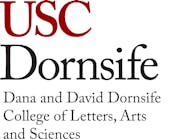Vincent Farenga has recently examined the nature of citizenship and the individual subject (the self, the soul, the mind) as they relate to questions of justice in the ancient Greek and contemporary western worlds. His 2006 publication "Citizen and Self in Ancient Greece: Individuals Performing Justice and the Law" (Cambridge University Press) considered how disputes about justice influenced the development of statute law, the jury trial, and individual moral agency and autonomy among the Greeks – and how they still influence contemporary ideologies of citizenship like liberalism, communitarianism, and deliberative democracy. (Thinkers whose ideas had a major impact on this study include Jürgen Habermas, Charles Taylor, John Rawls, Michael Sandel, and G.H. Mead. Among ancient authors and thinkers featured in this work are Homer, Hesiod, Solon, Aeschylus, Antiphon, Thucydides, Plato [Socrates], and Demosthenes.)
In addition to citizenship, he studies the practice and theory of democracy and republicanism in the Greek, Roman, and modern worlds as well as the dynamics of leadership in democratic and autocratic regimes in the Greco-Roman and modern worlds. He has a special interest in the history and personality of Alexander the Great.
Experience
-
–presentProfessor of Classics and Comparative Literature, USC Dornsife College of Letters, Arts and Sciences



